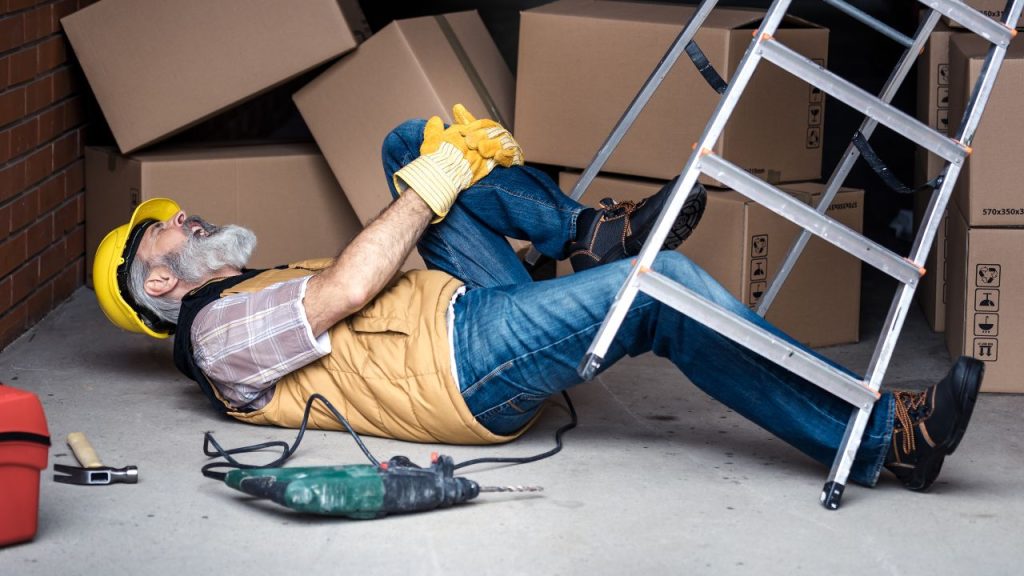Table of Contents
The Role of a Slip and Fall Attorney in Wilmington, NC: What to Expect
Slip and fall accidents can happen anywhere, from stores and restaurants to sidewalks and private properties. If you’ve suffered an injury due to such an incident in Wilmington, NC, a slip and fall attorney can help you navigate the legal maze involved in seeking compensation. Understanding the role of your attorney is crucial as it directly impacts the outcome of your case.
The primary responsibility of a slip and fall attorney is to protect your rights and advocate on your behalf. Here’s what you can generally expect when you consult with a Wilmington slip and fall attorney:
- Case Evaluation: Your attorney will begin by evaluating the details of your case. They will ask about the circumstances surrounding your fall, where it occurred, and any injuries sustained. This initial consultation is often free, allowing you to understand your options without financial commitment.
- Gathering Evidence: After taking your case, your attorney will gather evidence to support your claim. This may include:
- Photographs of the accident scene
- Medical records documenting your injuries
- Witness statements
- Surveillance footage, if available
- Proving Liability: One of the key roles of a slip and fall attorney in Wilmington, NC, is to establish liability. They will work to ascertain whether the property owner or another party failed to maintain a safe environment, thus contributing to your accident.
- Negotiations with Insurers: Most slip and fall claims involve dealing with insurance companies. Your attorney will negotiate with them to ensure you receive a fair settlement. They’re often familiar with typical settlement amounts and can counter any lowball offers you might receive.
- Litigation when Necessary: If negotiations falter, your attorney may recommend filing a lawsuit. They are equipped to handle all legal proceedings, from preparing the necessary documents to representing you in court. This includes managing court timelines and deadlines to file your claim.
- Understanding Local Laws: Each jurisdiction has its own set of laws governing slip and fall cases. A local Wilmington attorney is well-versed in North Carolina’s laws, including comparative negligence, which can impact your settlement. They ensure that all legal requirements are met, preventing unnecessary delays in your case.
Given the complexities involved, it’s vital to hire a slip and fall attorney who specializes in personal injury law. They have experience dealing with similar cases and understand the unique challenges that come with them.
Here are some factors to consider when selecting a slip and fall attorney in Wilmington:
| Factor | Importance |
|---|---|
| Experience | A seasoned attorney can navigate complicated cases more efficiently. |
| Reputation | Look for attorneys with positive reviews and successful case outcomes. |
| Communication Skills | Your attorney should explain complex legal matters clearly. |
| Fee Structure | Most slip and fall attorneys work on a contingency basis, meaning they only get paid if you win your case. |
When you secure a slip and fall attorney, they serve not merely as a legal representative but as your advocate. Their role is essential in ensuring that you receive the compensation needed for medical bills, lost wages, and pain and suffering. Because these cases often delve into the subtleties of negligence law, having a knowledgeable attorney on your side can significantly bolster your chances of a favorable outcome.
In Wilmington, NC, slip and fall cases can vary greatly based on location and individual circumstances. Whether your accident happened in a retail store, a private residence, or on public property, understanding how an attorney can help is vital. The right legal support can make a world of difference as you work toward recovery and justice.
Remember to document every detail related to your accident. From photographs of the scene to maintaining records of your medical treatments, thorough documentation will assist your attorney in building a solid case. A proactive approach combined with effective legal representation is your best bet for a successful resolution.
Common Causes of Slip and Fall Accidents in Wilmington
Slip and fall accidents can happen anywhere, and Wilmington, NC, is no exception. Understanding the common causes of these incidents can help individuals take necessary precautions and highlight the importance of legal assistance from a slip and fall attorney in Wilmington, NC. Below are some common factors that contribute to slip and fall accidents in the area.
Wet Surfaces
Water on the floor is a frequent cause of slip and fall incidents. Rain, spills, or leaks can create dangerously slick conditions. Property owners must take preventative measures, like placing warning signs or mopping up spills, to maintain a safe environment. When they fail to do so, they may be liable for any accidents that occur.
Uneven Flooring
Another significant factor is uneven floor surfaces. This includes:
- Damaged tiles
- Worn carpets
- Ramps that aren’t level
These hazards can lead to tripping and falling, particularly in busy areas where individuals may not focus on their footing.
Poor Lighting
Inadequate lighting is a common oversight in many establishments, both indoor and outdoor. Insufficient lighting can obscure obstacles and create an environment where falls are more likely. Property owners should ensure that all areas are well-lit, especially staircases and entrances, to minimize risks.
Cluttered Walkways
Obstructions in walking paths can also cause significant hazards. Common sources of clutter include:
- Boxes and merchandise in retail spaces
- Landscaping debris in outdoor areas
- Personal belongings in shared spaces
Keeping walkways clear is crucial for safety. When owners neglect this responsibility, they may face legal consequences if someone is injured as a result.
Outdoor Hazards
Wilmington’s climate can contribute to outdoor slip and fall accidents, particularly during inclement weather. Watch out for:
- Ice and snow accumulation
- Potholes and cracks in sidewalks
- Wet leaves or slippery grass
Property owners should regularly conduct maintenance to keep outdoor areas safe for visitors and residents.
Escalators and Stairways
The use of escalators and stairways can also present slip and fall risks. Issues like:
- Missing handrails
- Worn or damaged steps
- Spills or debris on the steps
Can lead to accidents. Owners should ensure that these areas are regularly inspected and maintained to prevent injuries.
Negligence in Maintenance
Failures in regular maintenance can create a multitude of hazards. This includes:
- Not promptly addressing reported issues
- Lack of routine checks for safety compliance
- Ignoring warning signs of wear and tear
When property owners ignore these responsibilities, they increase the likelihood of accidents and may face liability claims.
Legal Considerations
Understanding the causes of slip and fall accidents is just one part of the equation. If you or someone you know has experienced an accident due to these conditions, seeking the expertise of a qualified slip and fall attorney in Wilmington, NC, is crucial. They can help navigate the legal complexities and advocate for the compensation you deserve.
Preventative Measures
To minimize the risk of slip and fall accidents, both businesses and individuals can take some proactive steps, such as:
- Regular safety audits to identify hazards
- Promptly addressing maintenance issues
- Educating employees and residents about safety practices
Staying informed and vigilant can help you and others avoid the unnecessary injuries that slip and fall accidents can cause.
In Wilmington, maintaining safety and preventing slip and fall incidents is a collective responsibility. By understanding common causes and emphasizing preventive measures, both property owners and individuals can keep the community safe.
Key Factors to Prove Negligence in Slip and Fall Cases
In slip and fall cases, proving negligence is crucial for securing compensation. Here are the key factors that you need to establish to strengthen your claim against a property owner or tenant.
1. Duty of Care
The first step in proving negligence is demonstrating that the property owner or occupant owed you a duty of care. This means they are responsible for maintaining a safe environment. Duty of care arises in various situations, such as:
- Business proprietors must ensure their storefronts and interiors are safe for customers.
- Residential property owners need to take reasonable steps to secure common areas for visitors.
2. Breach of Duty
Once you’ve established that there was a duty of care, the next step is to show that the property owner breached that duty. Common examples include:
- Failing to fix broken handrails.
- Ignoring spills on the floor that could lead to slipping.
- Not clearing snow or ice in a timely manner during winter months.
3. Causation
For your slip and fall claim to be valid, you need to prove that the breach of duty directly caused your injuries. This involves linking your accident to the specific hazard that the property owner neglected. Evidence may include:
- Witness statements about the conditions leading to the fall.
- Photographs of the scene showing unsafe conditions.
- Medical records documenting your injuries and their connection to the fall.
4. Damages
You must differentiate between mere inconvenience and actual damages. This includes tangible and intangible losses as a result of the accident. Consider the following categories of damages:
- Medical expenses: hospital bills, physical therapy, medication.
- Lost wages: income lost due to inability to work following the injury.
- Pain and suffering: emotional distress or loss of enjoyment in life.
5. Comparative Negligence
Negligence isn’t always black and white. In many cases, the injured party may also share some responsibility for the accident. Understanding comparative negligence laws is critical, as they vary by state. In North Carolina, for example:
- If you are found to be 50% or more at fault, you can’t recover damages.
- If you are less than 50% at fault, your compensation will be reduced by your percentage of fault.
6. Time Limits and Reporting
Slip and fall cases are subject to statutes of limitations, meaning there’s a limited time to file a claim. In North Carolina, you typically have three years from the date of the incident to initiate legal proceedings. Additionally, it’s important to report the incident promptly to the property owner or manager. Delays could impact your case, as they may argue it was not significant.
7. Collecting Evidence
Ultimately, strong evidence is essential in proving negligence. Collect as much relevant evidence as possible, including:
- Surveillance videos that may have captured the fall.
- Incident reports submitted to the property owner.
- Photos of the scene, which can illustrate hazards.
All factors considered, proving negligence in slip and fall cases hinges on thoroughly establishing duty, breach, causation, and damages. The clearer you present your case, the better your chances of recovering compensation for your injuries.
For assistance, consulting a knowledgeable slip and fall attorney can provide you with crucial legal guidance tailored to your case. It’s essential to ensure that all the necessary factors are adequately documented and presented for the best chance of success.
Navigating the Claims Process: Steps to Take After a Slip and Fall Incident
Experiencing a slip and fall incident can be both distressing and confusing. Knowing what steps to take immediately after the accident is crucial for ensuring your health, safety, and potential compensation. Here’s a clear roadmap to guide you through the claims process following a slip and fall incident.
Seek Medical Attention
Your health is paramount. After a slip and fall, the first step is to make sure you receive a medical evaluation, even if you believe your injuries are minor. Some injuries, like concussions or internal injuries, may not show immediate symptoms.
Document the Scene
Gathering evidence is vital for supporting your claim. Here are some ways to document the scene:
- Take Photos: Capture images of the location, including any hazards that caused your fall.
- Witness Information: If there were any bystanders, ask for their contact details as they may be able to support your case.
- Incident Report: Report the incident to the property owner or manager and ensure it gets documented. Request a copy of the report.
Notify Your Insurance Company
Next, you need to inform your insurance company about the slip and fall incident. This step is critical whether you have homeowners’ insurance or a specific policy that covers premises liability. Provide all the necessary details, but be cautious about admitting fault or providing extensive statements without legal guidance.
Consult a Slip and Fall Attorney
Finding a qualified slip and fall attorney in Wilmington, NC, can significantly bolster your claim. An attorney with experience in similar cases will help you navigate the legal intricacies involved in pursuing compensation.
When choosing an attorney, consider the following:
- Experience in handling slip and fall cases
- Success rate in securing compensation for clients
- Clear communication and responsiveness
Gather Evidence with Your Attorney
Your attorney will guide you in gathering additional evidence to support your claim. This can include:
- Medical Records: Document injuries with hospital visits, diagnoses, treatment plans, and bills.
- Maintenance Records: If applicable, obtain records that show whether the property owner maintained the premises.
- Security Footage: Request any available surveillance video that captures the incident.
Understand the Legal Grounds for Your Claim
In order to secure compensation, your claims must establish negligence on the part of the property owner. The critical factors include:
- Duty of Care: The property owner had a responsibility to maintain a safe environment.
- Breach of Duty: Identify how the owner failed to uphold this duty.
- Cause of Injury: Demonstrate a direct link between the breach and your injuries.
- Damages: Documenting the financial impact, such as medical bills and lost wages.
File Your Claim
Once you have gathered your evidence and consulted with your attorney, you’ll file your claim. This involves formally notifying the property owner’s insurance provider of your intention to seek compensation. Ensure that all documentation and evidence are submitted along with your claim.
Negotiate a Settlement
Most slip and fall claims are resolved through settlements rather than court trials. Your attorney will handle negotiations to reach an agreement that appropriately compensates you for your injuries and losses. Be prepared for back-and-forth negotiations, and consult your attorney on any offers made.
Consider Legal Action If Necessary
If negotiations do not yield a satisfactory settlement, you may need to take your case to court. Your attorney will prepare your case, represent you in court, and advocate for your right to compensation.
Navigating the claims process following a slip and fall incident involves several essential steps. From seeking medical attention to consulting a qualified attorney and understanding the legal grounds for your claim, each step plays a crucial role in securing compensation. Remember, staying organized and informed can significantly impact the outcome of your case.
Understanding Compensation: What Victims Can Claim in Wilmington, NC
Understanding the rights of slip and fall victims is crucial, particularly in Wilmington, NC, where local laws can significantly impact compensation claims. When someone suffers an injury due to a slip and fall accident, various factors determine what compensation they may receive. This article details the types of compensation available in Wilmington and how victims can navigate their claims effectively.
Types of Compensation Available
Victims of slip and fall incidents can pursue multiple forms of compensation, often categorized into two main groups: economic and non-economic damages.
Economic Damages
Economic damages refer to tangible losses that victims incur due to their injuries. These can include:
- Medical Expenses: This includes costs for hospital visits, surgery, medication, rehabilitation, and any future medical needs related to the injury.
- Lost Wages: Victims can claim for the income lost during their recovery period. This may encompass both current losses and future loss of earning capacity if the injury leads to long-term employment problems.
- Property Damage: If personal belongings were damaged during the accident, victims might be able to claim compensation for repair or replacement costs.
Non-Economic Damages
Non-economic damages account for the intangible impacts of slip and fall accidents. These damages often include:
- Pain and Suffering: This compensates victims for the physical pain and emotional distress caused by their injuries.
- Loss of Enjoyment of Life: If the injury affects the victim’s ability to participate in enjoyable activities, they can seek compensation for this loss.
- Emotional Distress: Psychological effects, such as anxiety or depression resulting from the accident, may be factored into a compensation claim.
Determining Liability
In Wilmington, establishing liability is key to a successful compensation claim. North Carolina follows a modified comparative negligence rule, meaning that if victims are found to be partially at fault for their injuries, their compensation may be reduced accordingly. Therefore, understanding who is liable can influence the amounts that victims can claim.
Common Liabilities in Slip and Fall Cases
Various parties may be held liable in slip and fall accidents, including:
- Property Owners: If a property owner fails to maintain safe conditions, they can be held responsible for injuries that occur on their premises.
- Occupants: Tenants may also be liable if they are responsible for maintaining a safe environment.
- Maintenance Companies: If a third-party service is hired for upkeep and they neglect their duties, they could be held liable.
How to Pursue a Claim
Victims looking to pursue a compensation claim in Wilmington should consider following these essential steps:
- Seek Medical Attention: Always obtain medical care immediately after the accident. Documenting injuries through medical records is vital for the claim.
- Gather Evidence: Take photographs of the accident scene, gather witness information, and keep records of all expenses related to the incident.
- Consult an Attorney: A slip and fall attorney can provide guidance on legal rights, help establish liability, and navigate the complex claims process.
- File a Claim: Your attorney will assist in preparing and submitting the necessary documents to file a claim with the liable party’s insurance company.
Statute of Limitations
In North Carolina, victims have a limited time to file a personal injury claim, which is generally three years from the date of the accident. This timeframe makes it crucial for victims to act quickly to protect their rights.
Negotiating a Settlement
Most slip and fall cases settle before going to trial. Engaging in negotiations with the insurance company often requires substantiating the claim with credible evidence regarding damages and liability. Having an experienced attorney can enhance the chances of receiving the best possible settlement.
Understanding compensation for slip and fall incidents in Wilmington, NC, involves knowing the types of damages available and the importance of establishing liability. By following the proper steps and consulting with an attorney, victims can effectively navigate the complexities of their claims. With the right support, they can seek the compensation they deserve for their experiences.
Conclusion
When navigating the aftermath of a slip and fall incident, it’s crucial to understand the vital role a slip and fall attorney in Wilmington, NC plays in your recovery process. These legal professionals not only provide clarity and guidance on what to expect but also advocate for your best interests in every stage of the legal journey. If you or a loved one has experienced a slip and fall accident, engaging a seasoned attorney will allow you to focus on healing while they handle the complexities of your case.
Wilmington is known for its beautiful landscapes and bustling community, but it also harbors common causes of slip and fall accidents. Wet surfaces, poorly maintained sidewalks, and obstacles in pathways are just a few factors that often contribute to these incidents. Understanding these risks can help you take precautionary measures or, if injured, assist your attorney in establishing the circumstances surrounding the accident.
One of the most critical aspects of a successful slip and fall claim lies in proving negligence. Your attorney will detail how property owners must uphold a reasonable standard of care to ensure the safety of visitors on their premises. You will need to demonstrate that a dangerous condition existed, that the property owner was aware of this condition (or should have been aware), and that they failed to take corrective action, leading to your injury. The ability to gather evidence, witness testimonies, and expert opinions can significantly strengthen your case.
After experiencing a slip and fall accident, the immediate steps you take can greatly influence the effectiveness of your claim. Documenting the scene, seeking medical attention, and reporting the incident to the appropriate parties are essential actions that must be undertaken. A slip and fall attorney in Wilmington, NC will guide you through this essential claims process, ensuring you don’t miss any key steps that could jeopardize your potential recovery.
Understanding compensation is another vital component of the post-accident process. Victims often wonder what they are entitled to claim and how the compensation process works in Wilmington, NC. Medical expenses, lost wages, pain and suffering, and even punitive damages may all factor into your compensation claim. Your attorney will help you identify the various elements of damages relevant to your case, helping you pursue the maximum compensation possible for your slip and fall injuries.
It’s also important to recognize that every slip and fall case is unique. The nuances of your situation—such as the severity of your injuries, the clarity of evidence, and the specifics surrounding the accident—will determine the course of your claim. A knowledgeable slip and fall attorney will work closely with you to analyze the details of your case, tailoring their approach to maximize the potential outcomes.
Furthermore, the stress of dealing with insurance companies can be overwhelming, especially when you’re focusing on recovery. An adept attorney will act as your representative, negotiating with insurance providers on your behalf to ensure you receive an equitable settlement. This can save you time and relieve some of the burdens associated with the claims process.
Choosing the right slip and fall attorney in Wilmington, NC is not only about qualifications; it’s about finding someone who genuinely understands your situation and is dedicated to helping you recover. In an emotional and often challenging time, having a compassionate and experienced advocate can make all the difference.
Ultimately, the journey through a slip and fall case can be fraught with obstacles. However, with the right legal support, you can navigate the complexities of the claims process more effectively. By understanding the role of a slip and fall attorney, recognizing the common causes of accidents, familiarizing yourself with factors needed to prove negligence, and comprehending what compensation you may be entitled to, you empower yourself to make informed decisions. The road to recovery can seem daunting, but with a skilled attorney by your side, you’ll be better equipped to pursue justice and secure the compensation you deserve.








